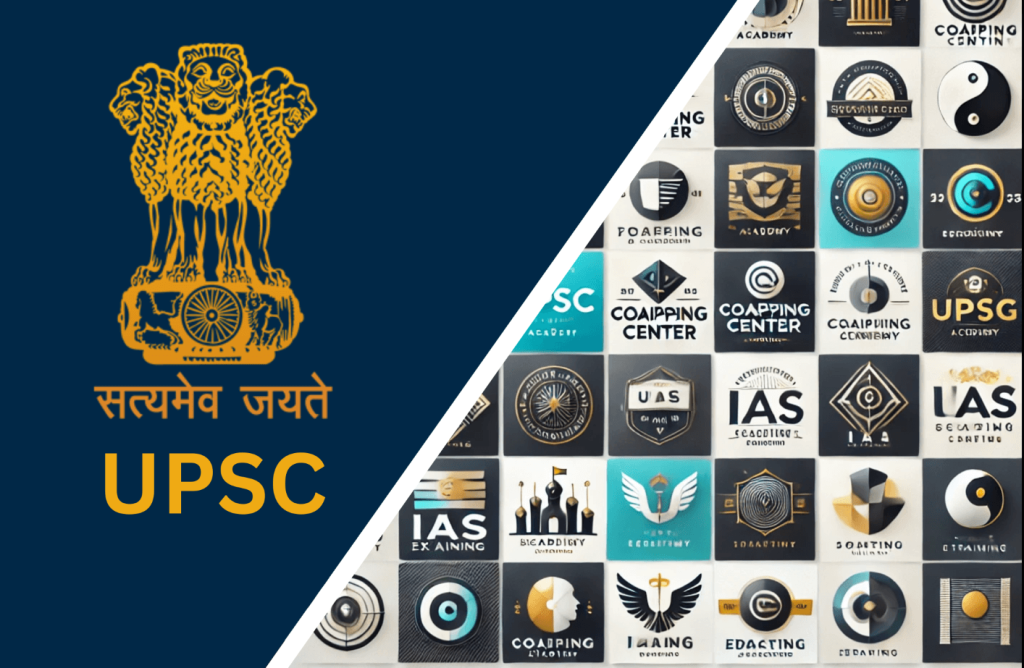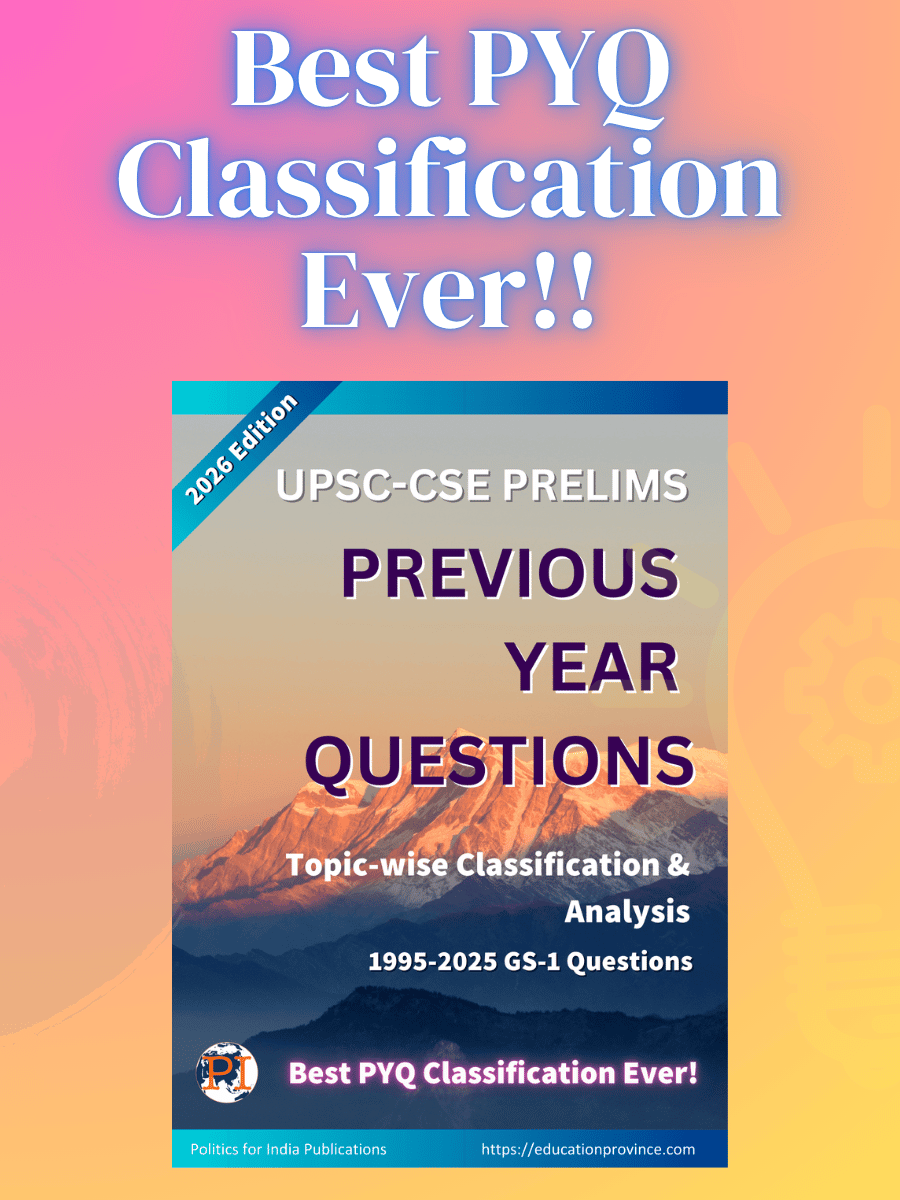Last Updated on April 24, 2025 by Admin
Introduction
The UPSC Civil Services Examination (CSE) Preliminary is the first screening stage for entry into Central Civil Services. The Prelims is significant because a single exam decides whether an aspirant gets a chance to write Mains and prove his/her worth. Given the high stakes, we commonly turn to mock tests provided by coaching institutes as a preparation strategy.
Mock tests serve multiple purposes. Through these, we are supposed to familiarize ourselves with exam conditions, identify weaknesses in our studies, and also build the confidence to face the real exam. Unfortunately, as is common knowledge, the nature of questions asked in these mock tests differ considerably from the way UPSC asks the questions. This creates several hurdles – it can demoralize us, it diverts us from actual important topics, and at the end, it can take us away from the very purpose it’s supposed to serve i.e. clearing UPSC Prelims.
Nature of UPSC-CSE Prelims Questions
Careful analysis of UPSC Prelims Previous Year Questions reveals several important things. UPSC Prelims questions are known for focusing on the fundamental understanding of a topic rather than trivial or obscure details. The exam is designed to test a candidate’s broad understanding of general studies – spanning history, geography, polity, economy, environment, science, current affairs, etc. – with an emphasis on basic principles and applied knowledge. Typically, if a question touches on a specific fact, it’s something of wider relevance or linked to an important concept, not a highly niche trivia.
This means that a well-read candidate who has thoroughly covered standard sources and understood concepts can often tackle UPSC questions without having memorized an excessive amount of minutiae.
Another hallmark of UPSC Prelims questions is that they often appear simple or straightforward at first glance, sometimes drawn from familiar topics, but answering them correctly requires a deeper understanding or careful application of knowledge. (e.g. 2023 question on Flag Code of India)
Further, UPSC Prelims questions are also unique because they are crafted by a panel of highly experienced subject experts, who also have a good understanding of governance and policy making. Thus, as we can see from PYQs, UPSC questions are often asked from key conceptual areas that are relevant to the administration and the future of public policy. Their experience allows them to differentiate between passing trends and genuinely significant developments, ensuring that the questions they frame reflect long-term relevance rather than momentary news headlines.
An illustrative example of this is Science & Technology (S&T) questions in CSE Prelims. Often, UPSC frames questions about emerging technologies, which gain mainstream importance a year or two later. For instance, UPSC asked about Blockchain Technology in Prelims 2018, well before India’s discussion on cryptocurrencies became mainstream. Similarly, in 2016, UPSC asked about Li-Fi technology, an alternative to Wi-Fi, which became a widely researched topic in the subsequent years.
You can check examples of such S&T questions in the following links:
🔹 Education Province – Electronics & IT PYQs (1995-2024)
🔹 Education Province – Space Technology PYQs (1995-2024)
🔹 Education Province – Biotechnology PYQs (1995-2024)
This ability to anticipate important trends makes UPSC’s question papers special and unparalleled. Unlike institutional mock tests, which often focus on current affairs with a short-term perspective, UPSC’s questions align with fundamental, structural shifts in knowledge and governance—ensuring that aspirants who clear the exam have the awareness and intellect required for India’s future challenges.
In essence, the “ideal” UPSC Prelims candidate is one who has a well-rounded grasp of fundamentals, can identify important things and trends in current happenings (from a governance perspective), as well as can exercise sound judgment under pressure.
Approach of Institutions in Mock Tests
In contrast to the UPSC’s balanced and fundamentals-oriented questions, many institutional mock tests often have a different flavor. Their approach often leans towards excessive specialization and difficulty.
There is a prevalent trend where some coaching institutes frame questions that are more difficult or detailed than the actual exam, under the notion that this will “prepare” aspirants for anything. However, in doing so, they end up emphasizing obscure facts, uncommon trivia, or hyper-specialized knowledge that goes beyond the scope of what UPSC typically asks.
For example, recently a student posted a question in our Telegram Group asking “While attempting a mock, I went through a question stating “The PM has the disciplinary control over the members of the Council of Ministers.’… What should we actually mean and refer to the word ‘disciplinary’ here?” (link to the question)
On further investigation, we realised that the question was from a newspaper article titled “PM, CMs have no disciplinary control over members of the Council of Ministers: Supreme Court”.
If you know, the courts often make statements like this, and newspapers publish them as a way to get more views. However, these are informal remarks, and doesn’t mean that a question should be asked on that.
Such details are unnecessarily trivial, and while they challenge aspirants, they may not be proportionately useful for the real exam.
The natural question is, why do some mock tests include such peripheral or highly difficult questions? One reason could be the competitive market of coaching – institutes want to show that their test series leaves “no stone unturned,” so they flood it with a wide array of facts (even low-probability ones).
There might also be an element of psychological strategy: if the mock is extremely tough, it can create an impression among students that the actual exam is very tough as well, thereby justifying the need for the coaching. This was, in fact, mentioned in an article by Clear IAS as well. (Link here)
Unfortunately, while such an approach will serve these institutions, it can mislead or misguide aspirants about what to focus on. If a student spends too much time memorizing those one-off facts for mock tests, they might neglect building the broad conceptual base that UPSC actually rewards.
Moreover, institutional mocks sometimes miss the deeper conceptual nature of UPSC’s questions. A mock test paper might concentrate on testing memory – for instance, asking a series of factual questions like years, definitions, matched pairs of terms etc. This will help in some questions in UPSC, but not all.
Because of all these factors, there is a strong disconnect: a candidate scoring very high in certain coaching mocks might still struggle in the real Prelims, and on the other hand, students scoring low in mock tests will still clear UPSC Prelims. Examples like this are not rare to find, just ask around.
It’s worth noting that not all mock tests are like this – many institutes do strive to create high-quality mock questions that align well with UPSC’s style. But the general observation among the aspirant community is that “no test series can mimic the nuances of the actual UPSC paper” perfectly, and some are off the mark in terms of balance.
UPSC wants to see if you have the knowledge and the aptitude to be a civil servant (through broad awareness and reasoning). On the other hand, institutional mocks primarily want to test only your knowledge and often err on the side of being exhaustive (sometimes excessively so).
Recognizing these differences can help aspirants not get discouraged by mock test performance and calibrate their study approach correctly.
How to Approach Mock Tests Then?
So, how do successful UPSC candidates view mock tests? Many toppers and experienced aspirants acknowledge the value of mock tests but also caution against over-reliance on them. The general strategy should be , mock tests are a tool, not the end goal in Prelims preparation. They are best used to practice time management, and test one’s knowledge. However, one should not take their content or scores as absolute predictors of the actual exam. The real exam can spring surprises, and sometimes people with modest mock scores do clear Prelims because they focus on fundamentals and analysis.
The above discussion also doesn’t mean that you should not solve the mock tests. In fact, UPSC toppers often solve 40-60 mock tests before Prelims, and we also strongly recommend doing so.
We should use mock tests to identify gaps in knowledge or strategy. For example, if you consistently err in questions related to a particular subject in mocks, that’s a sign to revisit those topics. If you find that you always run out of time or make silly mistakes under pressure, mocks are highlighting a skill to work on (time management, careful reading, etc.).
After solving the mock tests, you should look at what went wrong and why. Did you misinterpret the question? Did you read but forgot about the topic? Was it a concept you never studied? Did you overthink a simple question? Or the question itself is totally irrelevant, and there is no need to judge yourselves against that?
This analysis is where the real improvement happens. Simply taking mock tests one after another without reflection won’t help much; it’s the learning from mistakes that elevates one’s performance.
Also, do not let mock tests dictate your study plan completely. Some aspirants fall into the trap of chasing trivial facts that appeared in a mock test, thus deviating from standard preparation sources. Complete the core syllabus and readings first (Standard reference books and current affairs), use mocks to supplement that knowledge and practice recall, but don’t replace core study with only mock test study.
In other words, one shouldn’t just memorize mock test question-answers and assume they are prepared. This could be dangerous since UPSC will likely ask the subject in a different way. A wiser method is to treat mock questions as pointers: if a mock asks something you didn’t know, check if it’s an important topic; if yes, learn that topic properly rather than only that one fact. If the topic is not so important, just learn the particular fact asked in the mock test, and move on. We have published a detailed video, talking about how exactly to do the self-analysis of Mock Tests and get the best out of it. Below is the link, do check it out.
Self Analysis of Prelims Mock Tests | UPSC Prelims Strategy Series – Lecture 6
Conclusion
We hope that this article has helped you clear the air around UPSC Prelims Mock Tests. Our sincere intention through these articles is to help you approach UPSC preparation in a scientific manner. If you have a few more thoughts about the matter, please share them. It will help others as well.
Once again, best wishes for your preparation.
Disclaimer: Please note that the purpose of this article is not to dissuade you from joining any test series. In fact, we recommend solving 40-50 mocks before actual exam. Which means that you will have to opt for multiple institutions for mock tests. We only wanted to give clarity around importance you should attach to the marks you get in mock tests, and accordingly make changes in your preparation!









A serious test series will match it’s each and every question with that of the upsc and they can provide a logical rationale of asking a particular question.
history